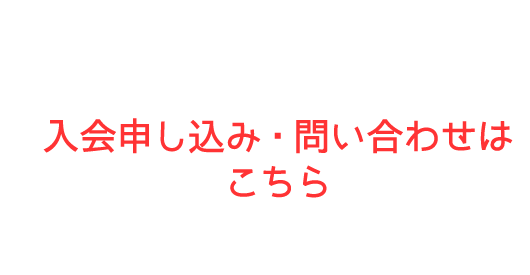Statement
Since its founding in 1962, the New Japan Women’s Association, with its 130,000 members, has been working all over Japan for the elimination of nuclear weapons, and for the promotion of gender equality, rights of women and children, and solidarity of women around the world for peace.
Climate Crisis and Pandemic Call for a Structural Change for Their Solutions
The emergency called climate crisis is caused by human activities, as the United Nations Intergovernmental Panel on Climate Change (IPCC) determined for the first time. Given that humans have burned half of all fossil fuels burned since the industrial revolutions in the last thirty years, it is apparent that neoliberal policies, widely introduced and implemented since 1990s, has led to the current crisis we face as well as the new coronavirus pandemic.
To solve the climate crisis and the pandemic, it is urgent more than ever to break away from neoliberalism, which has promoted deregulation and reduced healthcare, social security, and public services, thus increasing income inequality and poverty.
Pandemic has exposed the reality of gender-based discrimination and economic inequality globally, and the situation is particularly severe in Japan, the country ranking the 120th out of the 156 nations in terms of the Global Gender Gap Index for 2021, worst among the major advanced economies. 60 percent of Japan’s female employees are non-regular workers, and the gap in lifetime wages between men and women reaches almost 100 million yens (about 876 thousand US dollars). As the pandemic took hold, many women have lost their jobs. School closures and official requests for staying at home have led to the sharp rise in domestic violence, and the increase in suicide rates among women is five times larger than that of men.
We have pointed out that the factors hindering Japan from making progress towards gender equality are the business circles’ neoliberal strategy which undermines the basis for guaranteeing independence and equality, the backlash pushed by the war-glorifying and misogynist right-wing group with its members being at the center of the government, and the lack of policies for peace as seen in the country’s military expenditures setting another record high. Now that we are struggling to deal with the pandemic, it is time to change policies for moving the money from military to social purposes to defend people’s lives and livelihood, investing more on healthcare, social security, and education. It is time to advance de facto gender equality by ensuring women’s equal participation in decision making.
The New Japan Women’s Association members across the country have been providing support to women facing financial difficulties. We have focused our effort on ending “period poverty,” requesting municipalities to distribute free sanitary products at schools and public facilities, and as of July, this year, 581 municipalities in all 47 prefectures have taken measures, with more and more of them making sanitary pads available for free in bathrooms in schools and/or in public facilities. In order to achieve gender equality in our society, the Association carries out an annual campaign to collect signatures on four petitions calling on the parliament to revise the civil code for allowing the married couples to have separate family names, to ratify the Optional Protocol to the Convention on the Elimination of All Forms of Discrimination against Women, to resolve the Japanese Military “Comfort Women” Issue, and to amend the Income Tax Act. This year, too, we have submitted to the Diet more than 380,000 signatures in support of these petitions.
Alarmed by the climate crisis, we are organizing grassroots activities to stop global warming. Being the world’s fifth-biggest greenhouse gas emitter, the government of Japan has set the goal of achieving “zero carbon emissions by 2050,” but its CO2 emission reduction target remains low, and the national energy policy includes building of new and additional coal-fired power plants and continues to adhere to nuclear power generation. Japan lags far behind in transitioning to sustainable energy policies. 10 years have passed since the severe accident at the Fukushima Daiichi Nuclear Power Plant occurred, and the disaster is far from over. The whole picture of the accident has yet to be uncovered, and the people are still suffering from the damage caused by the accident. Nuclear power generation can never be a sustainable energy source, and to overcome the dependence on coal-fired and nuclear power generation requires a change in the way how politics are conducted by breaking the collusive relationship between the power industry and the government.
The New Japan Women’s Association is carrying out a signature campaign calling on the government to hold big companies, the main source of greenhouse gas emissions, to their climate commitments. We urge the government to set the goal of cutting emissions more than 50% below 1990 levels by 2030 with a reduction plan to achieve zero emission by 2050, to cancel the construction of new coal-fired power plants and the export of such plants with a view to decommissioning all existing plants by 2030, to set a goal of increasing the renewable energy ratio to more than 50 percent of the overall supply mix by 2030 to reach 100 percent in 2050, and to adopt legislation banning single-use plastic products by 2030. Our members are also active at the local level. They talk about what they can do at home as well as in the community and take actions. For example, they request local governments to declare climate emergency, and to take measures to combat global warming locally, such as installing water refill stations and promoting food drives. In some areas the Association members go to the sea and clean up the coasts with children.
For a Nuclear-Weapons-Free, Peaceful, Just and Sustainable Society
Nuclear weapons and climate crisis are the two major threats to human survival. The Treaty on the Prohibition of Nuclear Weapons which came into force in January 2021 is the fruit of the collective effort made by the Hibakusha, who have been telling the world that humanity cannot coexist with nuclear weapons, together with the civil societies of Japan and in the world. It marked a big step forward towards a “world without nuclear weapons.” In the face of the pandemic, the international community is trying to strengthen united actions to address the crisis. We have no time for provoking threats or fomenting conflicts for national interests and security. In this regard, Japan has a special role to play, being the only nation that suffered the use of nuclear weapons in war to experience its catastrophic consequences, and being the country having the Constitution which renounces war in its Article 9 based on remorse over the war of aggression it waged and the colonial rule it imposed on Asian neighbors. Japan’s role is to make the best use of Article 9 to promote peace diplomacy through dialogue, and most importantly to become party to the Treaty on the Prohibition of Nuclear Weapons leading the global effort for the elimination of these weapons. A nuclear-weapons-free, peaceful, just and sustainable society is exactly what the Sustainable Development Goals aim to achieve, and in order to make this vision a reality, a paradigm shift, a transformative change in how politics and society are working is required.
The New Japan Women’s Association, as a women’s organization which was founded with the elimination of nuclear weapons as the main goal and has since been working for realizing this goal, reiterates its call on Japan and all Member States to join the Treaty on the Prohibition of Nuclear Weapons, and reaffirms its commitment to act in solidarity with women and citizens around the world for Build Back Better.
Statement to the 66th Commission on the Status of Women

.png)



